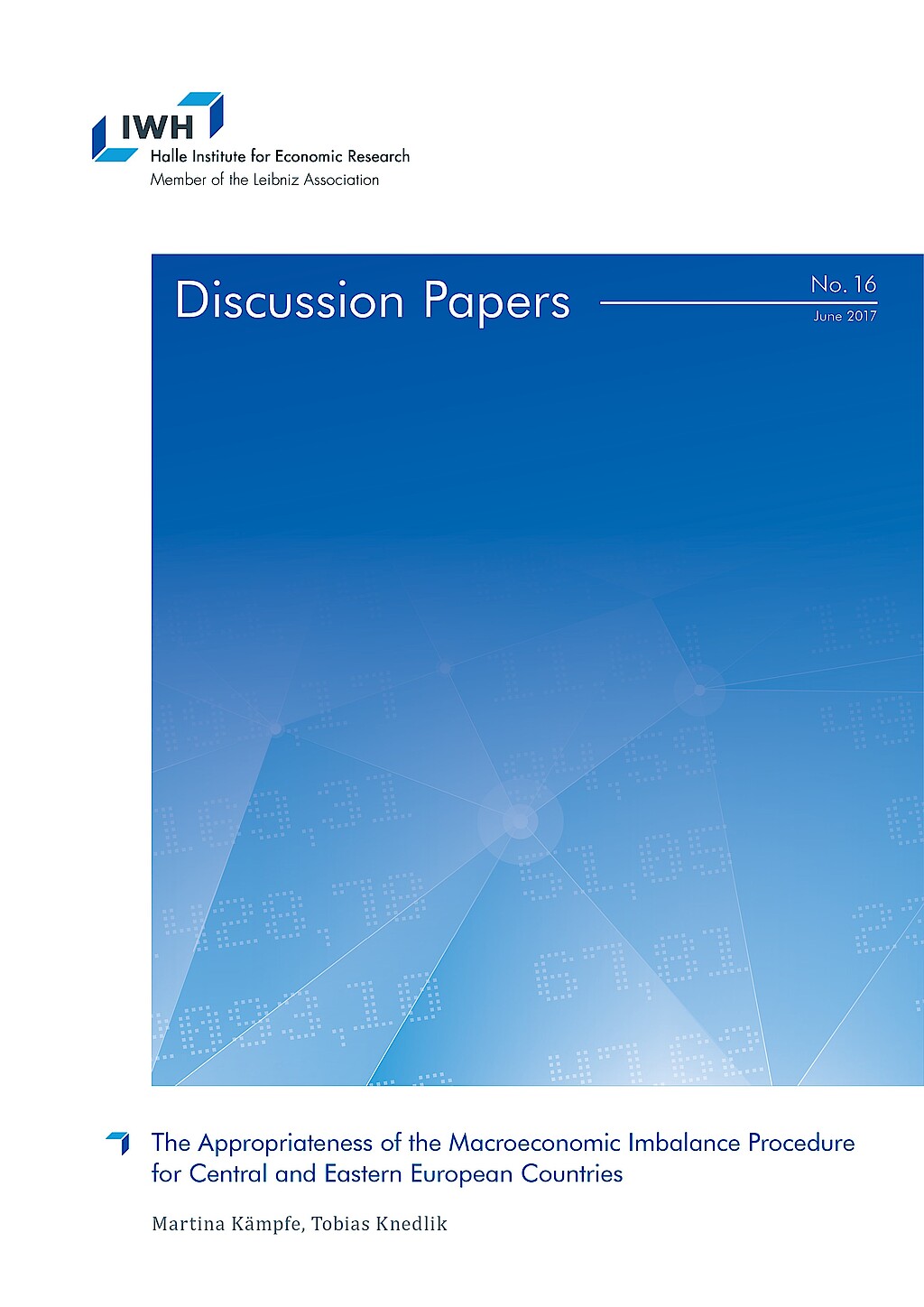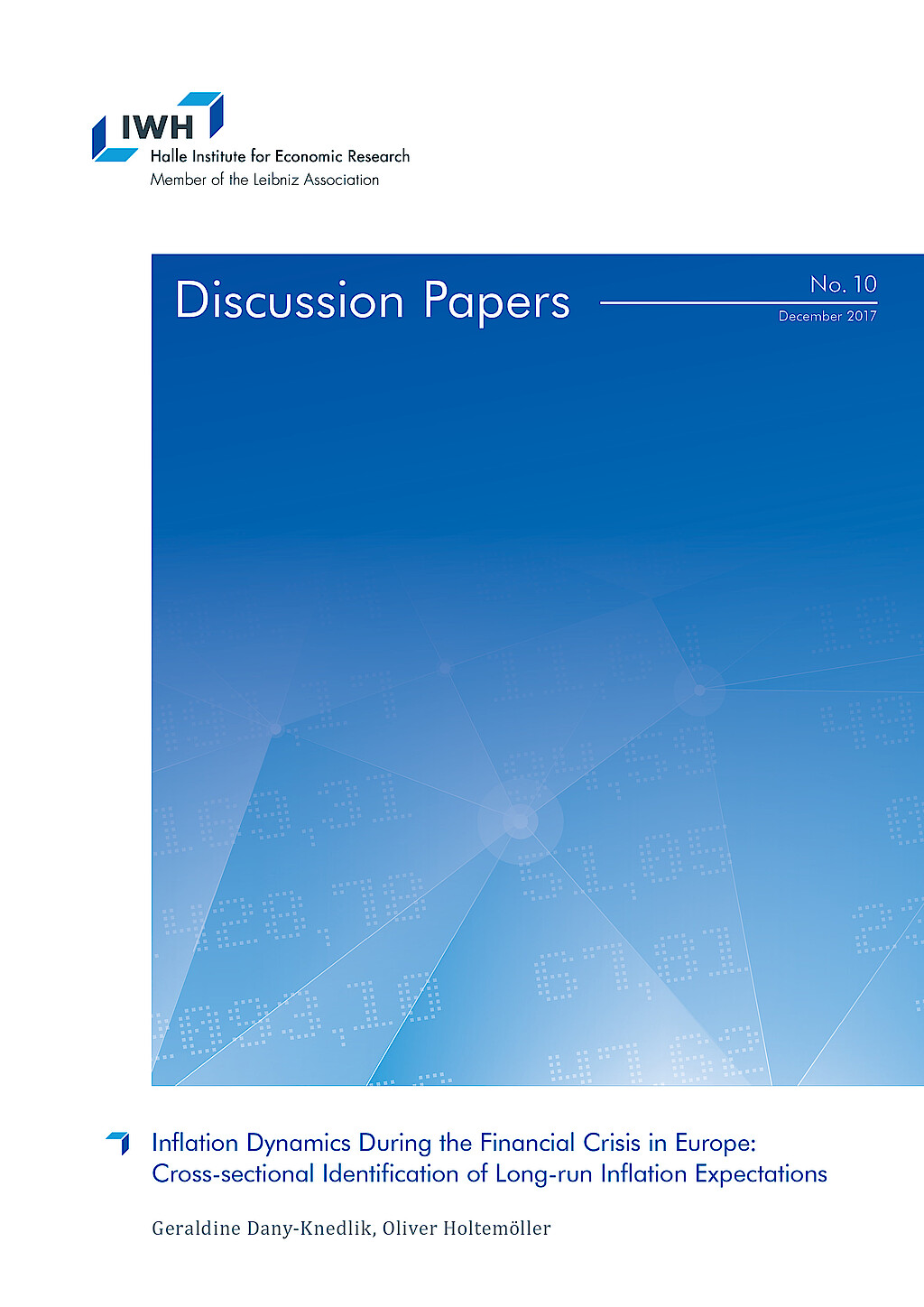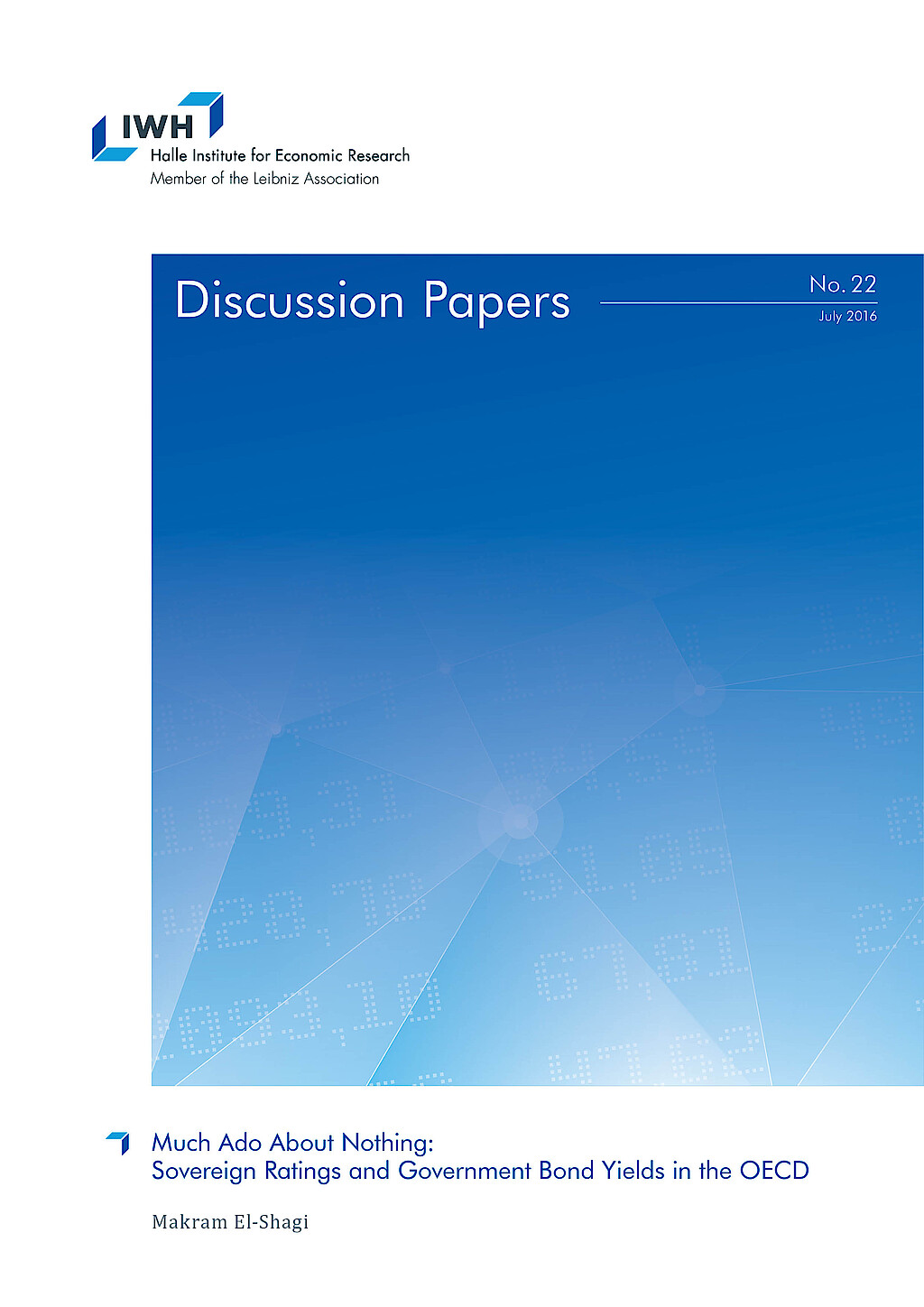Volatility, Growth and Financial Crises
This research group analyses the build-up of financial vulnerabilities and real consequences of financial crises. Different policy shocks and the causal reaction of macroeconomic aggregates are identified. Early-warning models describe the cyclical nature of financial vulnerabilities.
IWH Data Project: Financial Stability Indicators in Europe
Research Cluster
Financial Resilience and RegulationYour contact

- Department Macroeconomics
EXTERNAL FUNDING
01.2022 ‐ 12.2023
Sovereign Risk Shocks
05.2017 ‐ 09.2019
Early Warning Models for Systemic Banking Crises: The Effect of Model and Estimation Uncertainty
01.2018 ‐ 12.2018
International Monetary Policy Transmission
Refereed Publications

Potential Effects of Basel II on the Transmission from Currency Crises to Banking Crises – The Case of South Korea
in: Journal of Money, No. 13, 2010
Abstract
In this paper we evaluate potential effects of the Basel II accord on preventing the transmission from currency crises to banking crises by analyzing the South Korean crisis of 1997. We show that regulatory capital reserves under Basel II would have been lower than those under Basel I, and that therefore Basel II would have had adverse effects on the development of the crisis. Furthermore we investigate whether the behavior of rating agencies has changed since the East Asian crisis. We find no evidence that rating agencies have started to take micro-mismatches into account. Thus, we have reservations concerning the effectiveness of Basel II.

Die Bedeutung der Besitzverflechtung von Kapitalgesellschaften für die Finanzkrise
in: ORDO, 2010
Abstract
Im vorliegenden Papier wird die Bedeutung der Besitzverflechtungen zwischen Aktiengesellschaften (bzw. Kapitalgesellschaften im Allgemeinen) für die gegenwärtige Finanzmarktkrise herausgearbeitet. Durch den wechselseitigen Besitz von Firmen untereinander ist eine Situation entstanden, in denen bestellte Manager sich lediglich kontrollieren. Durch entstehende Abhängigkeiten und die innerhalb der verhältnismäßig kleinen Gruppe von Topmanagern mögliche implizite Koordination konnten Vorstände über die Entlohnungs- und damit auch über die Anreizsysteme, denen sie ausgesetzt sind, wesentlich mitentscheiden. Dies hat, wie gezeigt wird, erheblich zur Entstehung von Anreizsystemen beigetragen, die sich im Kern an kurzfristigen Erfolgen orientieren. Da insbesondere in der Finanzintermediation kurz- und langfristige Gewinnoptimierung durch die starke Korrelation von Risiko und Gewinnmöglichkeiten einem starken Trade- off unterliegen, haben diese Anreizsysteme wiederum eine erhebliche Rolle in der verfehlten Risikopolitik der Banken gespielt, die ein wesentliche Ursache der Krise war.

Finanzielle Instabilität und Krise in den Post-Transformations-Ländern
in: Wirtschaftspolitische Blätter, No. 3, 2009
Abstract
Die Ansteckung durch die globale Finanzkrise war nur ein Auslöser für die schwere Krise in den europäischen Post-Transformations-Ländern. Ursache war die seit 2001 zunehmende finanzielle Instabilität der Länder in Zusammenhang mit der Übernahme ihres Banken- und Finanzsektors durch internationale Finanzinstitutionen. Allgemeine euphorische Renditeerwartungen bildeten den Auftakt für Vermögenspreisblasen und die steigende Verschuldung des privaten Sektors, die durch ausländische Kapitalzuflüsse genährt wurde. Die Studie argumentiert daher, dass simple Konzepte einer Beschränkung inländischer Nachfrage keinen Ausweg aus der Krise weisen. Vielmehr wird eine zweite Transformation notwendig, die ein Wachstumsmodell etabliert, das den Einfluss spekulativer Kapitalzuflüsse reduziert und weiterhin hohe Wachstumsraten ermöglicht.
Working Papers

The Appropriateness of the Macroeconomic Imbalance Procedure for Central and Eastern European Countries
in: IWH Discussion Papers, No. 16, 2017
Abstract
The experience of Central and Eastern European countries (CEEC) during the global financial crisis and in the resulting European debt crises has been largely different from that of other European countries. This paper looks at the specifics of the CEEC in recent history and focuses in particular on the appropriateness of the Macroeconomic Imbalances Procedure for this group of countries. In doing so, the macroeconomic situation in the CEEC is highlighted and macroeconomic problems faced by these countries are extracted. The findings are compared to the results of the Macroeconomic Imbalances Procedure of the European Commission. It is shown that while the Macroeconomic Imbalances Procedure correctly identifies some of the problems, it understates or overstates other problems. This is due to the specific construction of the broadened surveillance procedure, which largely disregarded the specifics of catching-up economies.

Inflation Dynamics During the Financial Crisis in Europe: Cross-sectional Identification of Long-run Inflation Expectations
in: IWH Discussion Papers, No. 10, 2017
Abstract
We investigate drivers of Euro area inflation dynamics using a panel of regional Phillips curves and identify long-run inflation expectations by exploiting the crosssectional dimension of the data. Our approach simultaneously allows for the inclusion of country-specific inflation and unemployment-gaps, as well as time-varying parameters. Our preferred panel specification outperforms various aggregate, uni- and multivariate unobserved component models in terms of forecast accuracy. We find that declining long-run trend inflation expectations and rising inflation persistence indicate an altered risk of inflation expectations de-anchoring. Lower trend inflation, and persistently negative unemployment-gaps, a slightly increasing Phillips curve slope and the downward pressure of low oil prices mainly explain the low inflation rate during the recent years.

Much Ado About Nothing: Sovereign Ratings and Government Bond Yields in the OECD
in: IWH Discussion Papers, No. 22, 2016
Abstract
In this paper, we propose a new method to assess the impact of sovereign ratings on sovereign bond yields. We estimate the impulse response of the interest rate, following a change in the rating. Since ratings are ordinal and moreover extremely persistent, it proves difficult to estimate those impulse response functions using a VAR modeling ratings, yields and other macroeconomic indicators. However, given the highly stochastic nature of the precise timing of ratings, we can treat most rating adjustments as shocks. We thus no longer rely on a VAR for shock identification, making the estimation of the corresponding IRFs well suited for so called local projections – that is estimating impulse response functions through a series of separate direct forecasts over different horizons. Yet, the rare occurrence of ratings makes impulse response functions estimated through that procedure highly sensitive to individual observations, resulting in implausibly volatile impulse responses. We propose an augmentation to restrict jointly estimated local projections in a way that produces economically plausible impulse response functions.

Exit Expectations and Debt Crises in Currency Unions
in: IWH Discussion Papers, No. 18, 2015
Abstract
Membership in a currency union is not irreversible. Exit expectations may emerge during sovereign debt crises, because exit allows countries to reduce their liabilities through a currency redenomination. As market participants anticipate this possibility, sovereign debt crises intensify. We establish this formally within a small open economy model of changing policy regimes. The model permits explosive dynamics of debt and sovereign yields inside currency unions and allows us to distinguish between exit expectations and those of an outright default. By estimating the model on Greek data, we quantify the contribution of exit expectations to the crisis dynamics during 2009 to 2012.

Flight Patterns and Yields of European Government Bonds
in: IWH Discussion Papers, No. 10, 2013
Abstract
The current European Debt Crisis has led to a reinforced effort to identify the sources of risk and their influence on yields of European Government Bonds. Until now, the potentially nonlinear influence and the theoretical need for interactions reflecting flight-to-quality and flight-to-liquidity has been widely disregarded. I estimate government bond yields of the Euro-12 countries without Luxembourg from May 2003 until December 2011. Using penalized spline regression, I find that the effect of most explanatory variables is highly nonlinear. These nonlinearities, together with flight patterns of flight-to-quality and flight-to-liquidity, can explain the co-movement of bond yields until September 2008 and the huge amount of differentiation during the financial and the European debt crisis without the unnecessary assumption of a structural break. The main effects are credit risk and flight-to-liquidity, while the evidence for the existence of flight-to-quality and liquidity risk (the latter measured by the bid-ask spread and total turnover of bonds) is comparably weak.














